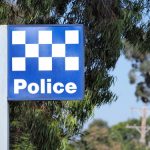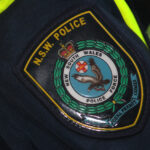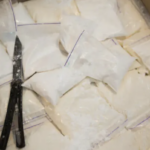NSW Police Officers to Face Charges over Facebook Attack

Two NSW police officers that led a cyber bullying campaign against NSW Greens MP Jenny Leong earlier this year, are likely to be criminally prosecuted.
The Police Integrity Commission (PIC) is compiling a report of evidence for the NSW Director of Public Prosecution which it says will recommend criminal charges against the two officers.
Jenny Leong’s Facebook post
On May 18 this year, Leong’s office posted a photo on the minister’s official Facebook page of two police officers using a sniffer dog to approach commuters on a Sydney train station.
This came a day after Ms Leong had reintroduced the Amendment (Sniffer Dogs-Repeal of Powers) Bill before parliament.
The bill aims to revoke NSW police powers to carry out drug dog searches in places like train stations and music festivals, without a warrant.
The post of the officers on the train read, “This kind of harassment and intimidation is exactly what the Greens’ bill is aiming to stop.”
The cyber bullying attack
The post was met with a barrage of criticism that spilled over into racist and sexist comments about the minister across the social media site.
Police officers began posting and sharing offensive memes and comments about Ms Leong on her page, as well as on their own private pages.
One of the individuals was a NSW Central Metropolitan Region police sergeant. He added a derogatory comment under a pseudonym to the train post about Ms Leong’s family that referred to her father as a “swamp monkey.”
After the officer’s identity was revealed, and police investigated other degrading posts he’d been publishing on the site, the officer was suspended from duty.
Another detective from the city appropriated Ms Leong’s profile picture, posted it on his page and altered it, adding the caption, “One condom could have prevented this from happening.”
Officers from across the city carried out the online attack on the state member for Newtown. They came from Sydney Local Area Command, Kings Cross, Cabramatta and Bankstown. Senior management were also involved.
The PIC investigation
Ms Leong referred the matter to the PIC in April. The commission has carried out a six-month investigation called ‘Operation Colchester’ that has found several of the officers’ actions were potentially criminal offences.
Last Friday, Ms Leong said she welcomed the PICs findings, adding that due to the public nature of the incident, it’s essential that the findings are made public and “any subsequent actions to deal with the behaviour of police are also handled independently.”
But this not the only time NSW police Facebook trolls have been caught antagonising users of the social media site in apparent reprisals for criticising their sniffer dog operations.
Police troll Sniff Off page
In late February this year, just prior to the hate campaign carried out against Ms Leong, police officers were found trolling to be trolling the Sniff Off Facebook Page.
The anti-sniffer dog page posts alerts notifying followers of the whereabouts of police drug dog operations.
On February 29, Sniff Off posted an alert stating there was a drug dog at Sydney’s Sydenham station. Two men then posted multiple comments denying the presence of the dog.
A few other members of the public responded by refuting the men’s claims, insisting that the dog was still there.
The admin eventually responded suggesting the men must have missed the dog as other sources had confirmed its presence. And then a third man responded saying those sources needed to “get off the gear.”
On March 7, a similar incident occurred when two of the same men denied there was a reported drug dog present at Liverpool Station.
NSW police subsequently confirmed the three men were police officers and said they would be dealt with.
Scipione’s letter
NSW Greens MLC David Shoebridge contacted NSW police commissioner Andrew Scipione about the incident in early April.
In response, the commissioner advised that two of the three officers found posting false information were actually on duty at the time.
All three were with the NSW police transport command in Bankstown and had been involved in drug dog operations.
Scipione told Shoebridge that the PIC would formally investigate the incidents.
Sniffer dog searches in NSW
The Sniff Off campaign is a NSW Greens’ initiative run out of David Shoebridge’s office. The page currently has over 22,500 followers.
Recent figures obtained by Shoebridge via NSW freedom of information laws show that police drug dog searches are in decline.
In 2015, NSW police performed 12,893 searches compared with 14,541 in 2014. However, the rate of false positive searches – where no drugs are found – is still disturbingly high.
In around 69 percent of searches carried out last year, police didn’t find any illicit substances. While of the 3,275 drug dog searches conducted by police transport command, 73 percent turned up no drugs.
Mr Shoebridge told Sydney Criminal Lawyers® last month that the public’s involvement is contributing to the steep drop in sniffer dog searches in NSW.
Officers ignoring official protocol
The NSW police Code of Conduct and Ethics requires officers to “behave honestly and in a way that upholds the values and the good reputation of NSW police whether on or off duty.”
NSW police published its Personal Use of Social Media Policy and Guidelines on August 14 last year.
The policy makes it clear that officers must obey the law when posting on social media. It states that police should not “post any material that is prejudicial, defamatory, bullying, libellous, discriminatory, harassing, obscene or threatening.”
The guidelines also specifically outline a list of different types of inappropriate posts that have led to “complaints, investigations and management action for misconduct.”
These include “racist or other offensive comments about the local community,” which is where officers overstepped the line with Jenny Leong.
The guidelines also prohibit “comments posted while on duty about current work tasks,” which seems to be the case with two of the officers involved in the Sniff Off page fiasco.
So while NSW police have strict guidelines when it comes to using social media – and there are both civil and criminal laws against defamation, threats and certain forms of vilification – some officers feel they can act above the law and do as they please online.






